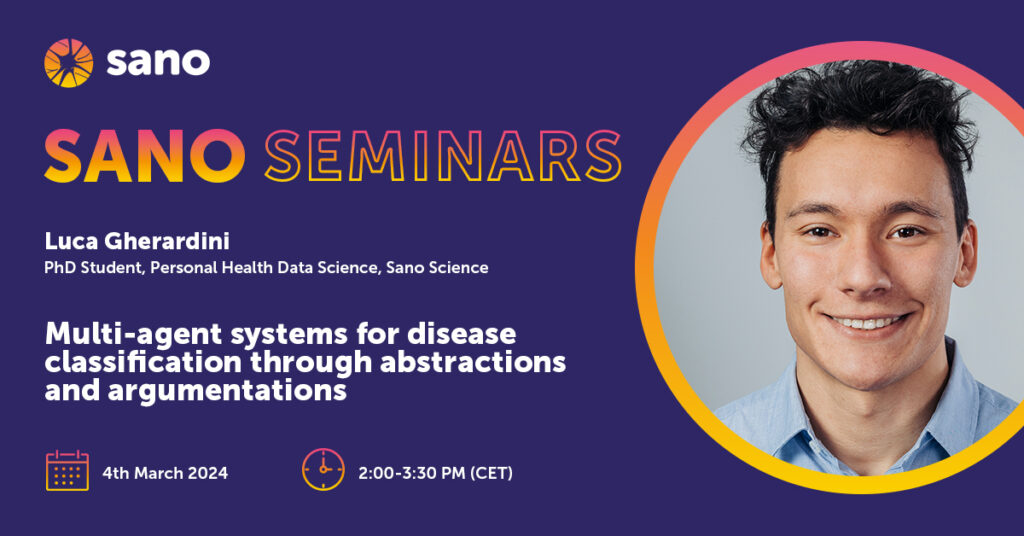124. Multi-agent systems for disease classification through abstractions and argumentations
Luca Gherardini – PhD student, Personal Health Data Team, Sano Centre for Computational Medicine, Krakow PL
Abstract
The availability of large data sets is providing the impetus for driving many current artificial intelligent developments. However, specific challenges arise in developing solutions that exploit small data sets, mainly due to practical and cost-effective deployment issues, as well as the opacity of deep learning models. To address this, the Comprehensive Abstraction and Classification Tool for Uncovering Structures (CACTUS) is presented as a means of improving secure analytics by effectively employing explainable artificial intelligence.
A natural application of this concept is Age-related Macular Degeneration (AMD), a complex retinal disease with a long and heterogeneous progression trajectory. AMD presents many factors with deep and subtle interactions, from genetic to lifestyle habits, making the data collection necessary for its correct assessment challenging.
CACTUS is proved to be able to distinguish between individuals with and without AMD better than traditional machine learning models.
About the author
Luca got a Master of Science in Computer Science from the University of Modena and Reggio Emilia, in Italy. He feeds a deep curiosity for many scientific fields, for which he decided to join Sano in a project on proteins diffusion in Alzheimer and Parkinson diseases. Luca is always focusing on self-development, meditation, and training sessions.


